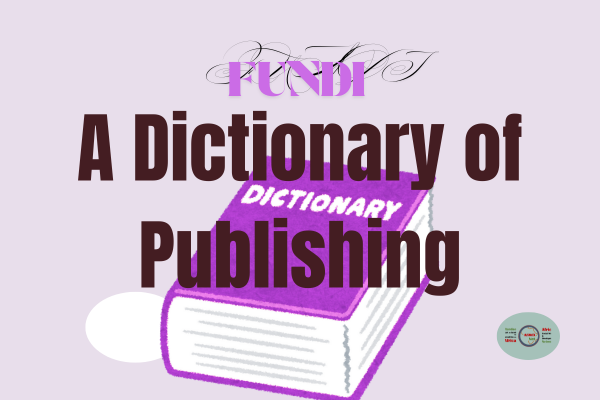
Publishing Dictionary | Fundi
Stage 1: Planning
- Identify a gap and social problem – recognise what is missing in knowledge or practice.
- Research question – the guiding query the study seeks to answer.
- Hypothesis – a testable prediction (mainly for quantitative studies).
- Objectives – general and specific aims of the study.
- Philosophical framework – one or more philosophies guiding interpretation (e.g., Ubuntu (Africa), Buen Vivir (Latin America), Confucianism (Asia), Stoicism or Existentialism (Europe), Islamic philosophy (Middle East), Seventh Generation Principle (North America Indigenous) and Ho‘oponopono (Pacific/Oceania).
- Theoretical framework – one or more theories guiding the research (e.g. social learning theory, dependency theory).
- Conceptual framework – a mix of philosophies, theories, models, and literature brought together to guide the study.
- Methodological theory – the theoretical grounding for the choice of methods (e.g. ethnography, phenomenology, participatory action research).
Stage 2: Ethics
- Ethics protocol – the standards and cultural principles guiding ethical practice.
- Ethics statement – declaration of ethical conduct within a manuscript.
- Ethics application – the request for approval from an ethics committee.
- Indigenous ethics (Chilisa, 2014):
Stage 3: Proposal
- Research proposal – formal written document to seek approval or funding.
- Study or research plan – a document or section showing how the study will be conducted. It is broader than a protocol and detailed compared to a proposal.
Stage 4: Conducting Research
- Study protocol – detailed step by step plan for how each stage of the study will be conducted. Its practical compared to a proposal.
- Methodology – the overall approach and logic (e.g. qualitative, quantitative, mixed methods, Indigenous).
- Methods – the specific tools and techniques used to collect and analyse data.
- Western methods: surveys, randomised controlled trials, experiments, structured interviews.
- Indigenous methods: imbizo, dare, indaba, baliano, storytelling, oral histories, communal consensus.
- Creative methods: theatre, poetry, performance, film.
- Artistic methods: drawing, photography, murals, music.
- Humanistic methods: narrative inquiry, auto-ethnography, life history, phenomenology.
- Co-analysis – collaborative analysis with co-authors, participants, or community.
Stage 5: Writing
- Title / Running title – main heading and short journal heading.
- Abstract – concise summary of purpose, methods, results, and implications.
- Key words – searchable terms chosen to represent the study.
- Introduction – opening section stating background, problem, and aims.
- Background – literature and context supporting the study.
- Results / Findings – evidence generated by the study.
- Discussion – interpretation of findings.
- Implications – what the findings mean for theory, policy, or practice.
- Recommendations – practical or policy suggestions.
- Limitations – constraints or weaknesses in the study.
- Strengths – advantages or unique contributions of the study.
- References / Bibliography – listing of sources cited.
- Biography – author background, sometimes included.
- Caption – text accompanying a figure, table, or image.
- Descriptive writing/review – summarises and reports literature or findings without deep critique.
- Critical writing/review – analyses, compares, and evaluates literature or findings.
Stage 6: Publishing
- Article – written report of research; also called a paper.
- Author / Co-author – person(s) who contribute to writing and take credit.
- Refereed journal – a journal where articles undergo peer review.
- Indexed journal – a journal listed in databases (e.g. AJOL, Scopus, Web of Science).
- Accredited journal – a journal recognised by bodies such as DHET (South Africa).
- Journal policy – rules of the journal (scope, ethics, fees, review type).
- Open access – research freely available to the public.
- Open access fee – payment sometimes required for open access publishing.
- Peer review – evaluation of a manuscript by experts.
- Single-blind review – reviewers know the authors, but authors do not know reviewers.
- Double-blind review – neither authors nor reviewers know each other.
- Copyediting – correcting grammar, clarity, and formatting.
- Proofreading – final check for errors before publication.
- Response to review / Rebuttal – authors’ reply to reviewers’ comments.
- Accepted – article is approved for publication.
- Rejected – article is not accepted.
- Desk rejection – article rejected without being sent for review.
- Predatory journal – journal that charges fees without providing legitimate editorial or peer review services.
- Erratum – correction of errors made by the publisher.
- Corrigendum – correction of errors made by the author.
- Retraction – withdrawal of a published article due to major problems.
Stage 7: Dissemination
- Research outcomes – the products and results of research.
- Non-traditional research outcomes – outputs such as performances, films, community reports, artwork.
- Dissemination – sharing findings beyond academic journals.
- Participant-appropriate dissemination – returning results in forms participants can use (storytelling, radio, community meetings).
- Knowledge translation – adapting research for practitioners and policymakers.
- Policy brief – short, accessible summary of findings for decision-makers.
- Community report – simplified summary for participants or local communities.
- Oral dissemination – storytelling, song, or gatherings as research communication.
Use the form below to subscibe to Owia Bulletin.
Discover more from Africa Social Work & Development Network | Mtandao waKazi zaJamii naMaendeleo waAfrika
Subscribe to get the latest posts sent to your email.


